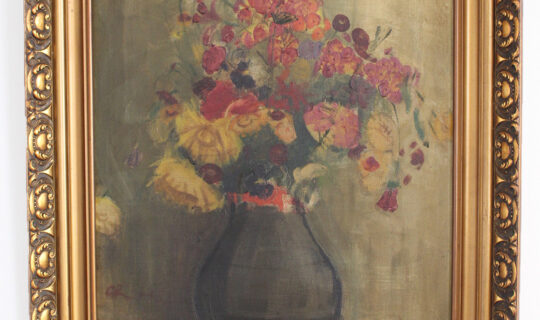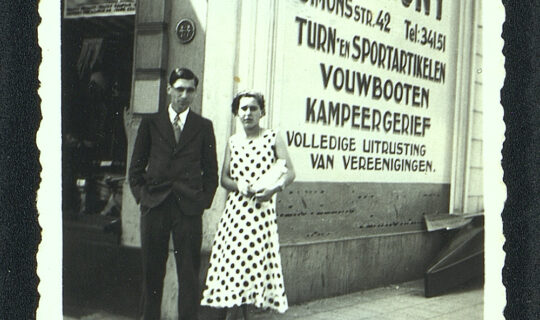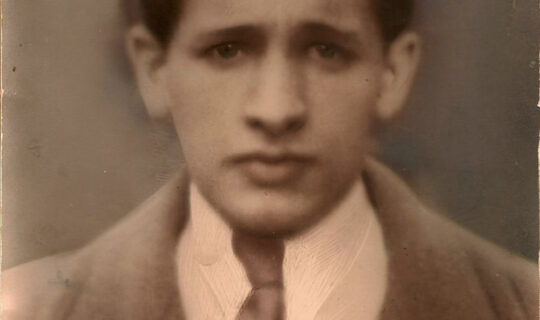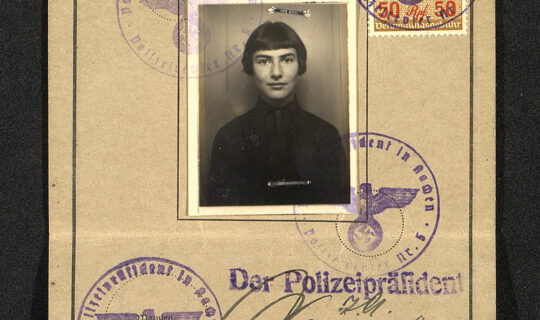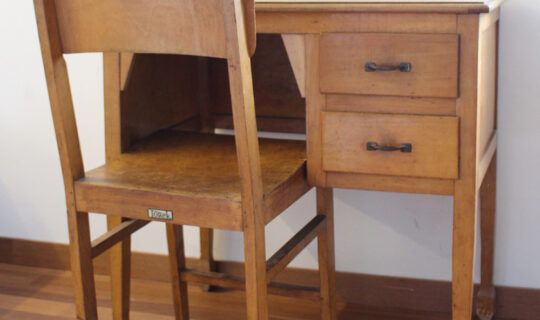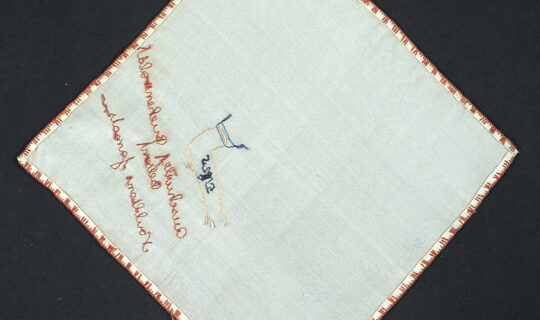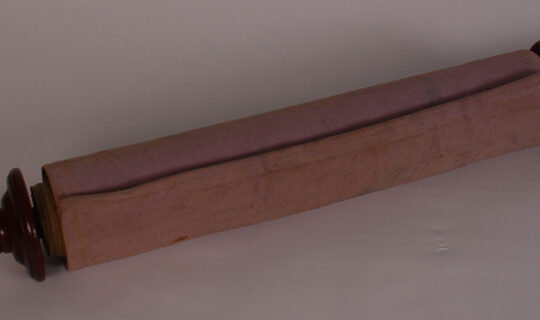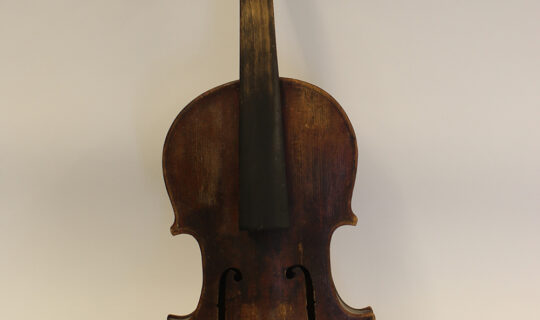
Collection Maurice Flam
Maurice Flam, brother of Leopold Flam, survived deportation as a political prisoner. On his repatriation to Belgium in 1945, he brought with him a violin given to him by a musician friend in the Dora concentration camp. On the latter’s deathbed, Maurice had promised his friend that he would take good care of the instrument. However, Maurice did not survive long after his repatriation, at which point Leopold took care of the violin. In 2019 his son Platon Flam gifted the instrument to Kazerne Dossin.


